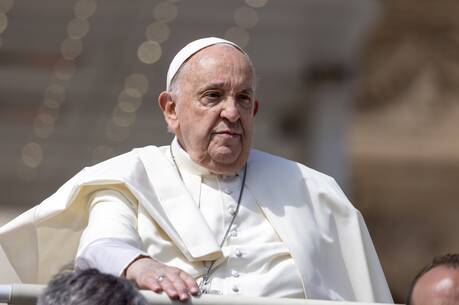Sometimes unexpected goodness just blows life open. It happened to me last year about six weeks after I was felled by a bad back. After I had declined an invitation from old friends for dinner because I couldn’t manage public transportation, they e-mailed back: “Come. We’ll send a car.” After weeks of forced immobility, the dinner party was a surprise delight, and I will be forever grateful. Both the natural and historic origins of the Thanksgiving holiday have their roots in the same kind of dramatic contrast: need and the generosity of others, even strangers, feast following famine, comfort after hardship. Gratitude is a basic human emotion, and when it floods into us as a result of unexpected goodness, becoming a pervasive and perduring attitude affecting our outlook on life, it is a religious disposition as well. When we are receptive to that experience, we are liberated from self-concern to deal generously with our fellow creatures.
The Thanksgiving holiday has its roots in European harvest festivals, in which peasants familiar with the fickleness of nature gave thanks to God for the summer harvest. The first true Thanksgiving in Plymouth Colony, historians believe, was celebrated in 1623 following “a drought, prayers for rain and a subsequent rain shower.” To this day the barrenness of the season underscores the bounty we are blessed to enjoy. The relative simplicity of the feast as a family event, preserves a remnant, at least, of that natural piety.
In 1863 President Abraham Lincoln set the day of national thanksgiving as the last Thursday in November. Lincoln’s Thanksgiving Proclamation was a model of Christian civic theology, praising God’s generosity and mercy for the prosperity the nation enjoyed in the midst of the devastation of the Civil War. A shrewd observer of human nature, Lincoln believed the observance was necessary, because the heart is “habitually insensible to the ever watchful providence of Almighty God.” He reminded his fellow citizens, “we are prone to forget the source from which [these gifts] come, [and to which] others have been added, which are of so extraordinary a nature, that they cannot fail to penetrate and soften.”
He explained that the demands of war on the nation...
have not arrested the plough, the shuttle, or the ship; the axe has enlarged the borders of our settlements, and the mines, as well of iron and coal as of the precious metals, have yielded even more abundantly than heretofore. Population has steadily increased, notwithstanding the waste that has been made in the camp, the siege and the battle-field; and the country, rejoicing in the consciousness of augmented strength and vigor, is permitted to expect continuance of years, with large increase of freedom.
The president’s piety was evident. “No human counsel hath devised nor hath any mortal hand worked out these great things. They are the gracious gifts of the Most High God, who, while dealing with us in anger for our sins, hath nevertheless remembered mercy.” Lincoln asked the nation to combine its thanksgiving...
with humble penitence for our national perverseness and disobedience, [and] commend to his tender care all those who have become widows, orphans, mourners or sufferers in the lamentable civil strife in which we are unavoidably engaged, and fervently implore the interposition of the Almighty Hand to heal the wounds of the nation and to restore it as soon as may be consistent with the Divine purposes to the full enjoyment of peace, harmony, tranquillity and Union.
Lincoln understood that not just the bounties of our land but also the blessings of liberty are gifts from God’s hand bestowed on a sinful people. This year’s Thanksgiving seems an especially appropriate time to meditate on Lincoln’s message: the undeserved character of an economy growing in the midst of a tragic war; the need for penitence for the arrogance of national power; mournful prayer for the victims of war; and renewed perseverance in the pursuit of human rights for all.
When our families and communities gather for Thanksgiving dinner this year, therefore, grace before meals ought to take some time, be given serious thought and perhaps even be preceded by some self-examination and searching family discussion. While some of us may serve dinner to the homeless and the needy, all of us should decide how we will imitate God’s generosity to our nation not only by direct service of others but also by assuring the responsible use of American wealth and power abroad.







